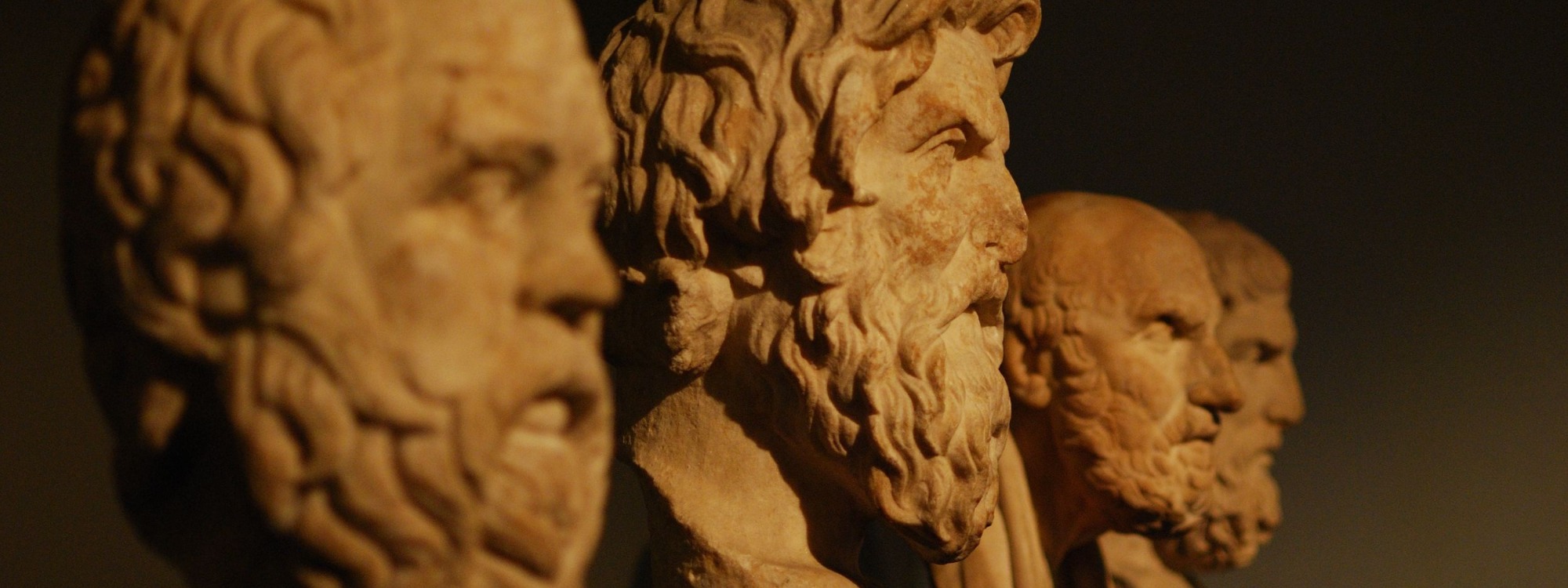
Greek (Classical)
‘Classics is about the past, but it's also about how we understand ourselves now...Classics students are trained to think hard, to express themselves and to write well qualities a hell of a lot of employers are looking for.’
Mary Beard, Classicist
We build upon the classical tradition in this school which has been unbroken since it was founded. We offer the full complement of classical subjects at Simon Langton Grammar School; one of a handful of state schools offering Greek at GCSE and A-level. Classics has a vital role to play in the school’s curriculum for the following reasons:
- Classical Civilisation sets our own civilisation in context. The impact of Greek and Roman civilisation on European thought & culture was transforming and enduring. We present this creatively in the classroom and enhance the curriculum with trips to Italy and Greece, and to drama productions and museums in London.
- The study of Latin & Greek provides an in-depth understanding of language structure which builds steadily on the journey from year 8 to year 13.
- All 3 subjects (Latin, Greek & Classical Civilisation) provide access to some of the most influential western literature: Homer’s Iliad, Virgil’s Aeneid and the works of Euripides, Sophocles and Aristophanes.
- We provide the opportunity to access classics at all levels, from year 8 to university entrance. Every student has a chance to encounter this from year 8 onwards.
- In the sixth form we produce ambitious classicists of the highest calibre who understand how to access the latest research and compete with the best students nationally
Minimum Entry Criteria
Essential: 7 in Greek
Please note: This course will only run if there is sufficient interest
Board
OCR
Outline of the Course
OCR’s A Level in Classical Greek allows learners to develop their understanding of the Classical Greek language and the related ancient literature, values and society. It enables students to:
- acquire the language skills which enable learners to read literary texts, both prose and verse, in the original language
- develop an interest in, and enthusiasm for, the literary, historical and cultural features of the ancient world
- acquire the literary skills which enable learners to read ancient literature, both prose and verse, in its original language with appropriate attention to literary techniques, styles and genres
- apply analytical and evaluative skills at an appropriate level which show direct engagement with original texts in the ancient language
- make an informed personal response to the material studied
- begin to develop a sensitive and analytical approach to language generally
- develop research and analytical skills to enable them to become independent learners.
Component 1: Unseen Translation – Students build their knowledge of and fluency in the language, including vocabulary, linguistic structures, and style to enable them to translate unseen passages of Latin prose and verse.
Component 2: Comprehension – Students develop and demonstrate their knowledge of vocabulary and language structure by showing understanding of an unseen prose text through comprehension and questions on grammar and syntax.
Component 3: Prose Literature –Students taking A Level in 2027-2028 will study two texts selected from Herodotus, Plato, or Plutarch
Component 4: Verse Literature – Students taking A Level in 2027-2028 will study two texts selected from Homer, Euripides or Aristophanes.
Both literature components involve translation of the text, literary analysis and commentary, and essays.
Assessment
Type of Assessment |
Duration |
Weighting |
|
1 |
Unseen translation |
1 hour 45 minutes |
33% |
2 |
Comprehension |
1 hour 15 minutes |
17% |
3 |
Prose Literature |
2 hours |
25% |
4 |
Verse Literature |
2 hours |
25% |




